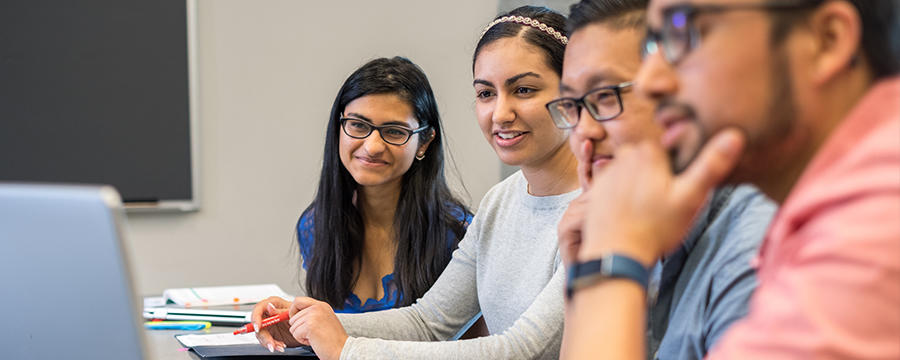Academic Integrity
Academic integrity is a core value of the University of Calgary. At UCalgary, academic integrity is a commitment to, and the demonstration of, honest and responsible scholarship. Maintaining academic integrity while earning your degree represents your true academic accomplishments.

Have questions about academic integrity at UCalgary?
Academic integrity is more than just plagiarism. Download our student handbook to learn more about academic integrity or email us if you have any questions!
Workshops
Attend one of our interactive workshops to help build your citation skills and learn how to appropriately collaborate with your peers.
Enrolled in online courses this term? If you're unfamiliar with online learning, we're here to help. Learn more about Academic Integrity in online learning.

Have questions about academic integrity?
Join this free, self-guided D2L course to improve your understanding of academic integrity and learn how to avoid plagiarism, unauthorized assistance and more during your studies.
Please note that you must be signed into D2L first in order to view the enrolment page.
For staff and faculty
Want to request an academic integrity workshop for your students? Want to expand your own understanding of academic integrity?
Visit our page to find resources for staff and faculty.
Academic Integrity in your final exams: Frequently asked questions
There are two main types of online tests and exams:
- Open book/ take home tests: Instructors often give this type of test when they are more interested in seeing you think critically or apply content from the course.
- Online tests and exams: Often scheduled at a specific time and more likely to mirror what you may be used to for an in-person exam, just taken online.
No. Each instructor and each exam may have its own unique set of guidelines. This will include whether you can access your class notes, textbooks, or other online resources or whether you can move backwards and forwards freely between test sections and questions.
To avoid surprises on the day of your test and to ensure that you avoid unintentional academic misconduct, it’s important not to apply the guidelines of one exam to another without first checking with the instructor who set the exam.
To ensure that you are fully prepared check that you know what the guidelines are for each of your exams.
- Timing: when does the exam take place and how long do you have to complete the exam?
- Access: is there an exam window? When does it open and when does it close?
- Resources: what resources are you allowed to access during the exam? Has your instructor made it clear whether you can access your class notes, your textbooks, or other online resources? If you aren’t sure, ask your instructor as soon as possible.
No. For some instructors open book may mean you can only use your lecture notes. For other instructors they may allow notes and textbooks but not online resources. Some instructors may allow you to use all of them.
Always check with your instructor about what the permitted resources are in an open book test or exam.
Yes. If you use any sources (articles, websites, books etc.) you must always quote, paraphrase or summarise the source and include the in-text citation and reference, just like you would in any of your academic papers.
This depends on your instructor. It’s unlikely that your instructor will allow you to seek support from a writing tutor for exams. Writing tutors will not review a take-home exam unless you bring written permission from your instructor.
Looking for more resources on proper researching and citation methods? Browse our Writing Support resources!
